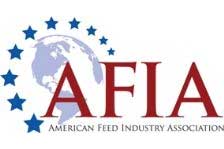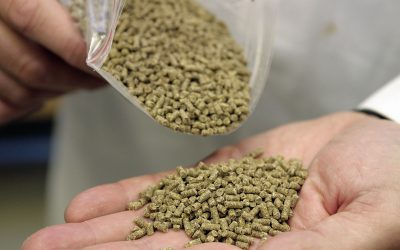AFIA worries about corn supply

The American feed manufacturers, united in AFIA, have urged US President Obama to waive the ethanol blending mandate under the Renewable Fuel Standard to relieve the pressure on the declining corn supply as a result of the drought threatening the harvest.
In a letter to President Obama AFIA states that with present drought conditions impacting the cost and availability of corn supplies, it believes that food security should command the same priority as energy security and that the Administration must immediately use the RFS waiver to mitigate disaster.
“Livestock and poultry feed represent up to 70% of the cost of producing this nation’s meat, milk and eggs. Any negative influence on the cost of feed represents an increase in the cost of on-farm food production,” explained Joel Newman, president and CEO of AFIA.
That cost is absorbed by the entire food chain, resulting in consumers paying higher costs for food; an unfortunate circumstance given today’s economy.
Government sees no need
Despite this, Secretary of Agriculture, Tom Vilsack, earlier this week stated there was no reason for the Administration to waive all or part of the ethanol RFS mandate.
AFIA emphasized that the current RFS requires the ethanol industry to use in excess of 40% of the US corn production to meet this mandate.
Given current conditions, the corn crop will certainly not be able to meet the Secretary’s expectation of producing the country’s third ever largest corn crop; and our projected stocks-to-use rations are reaching dangerously low levels, AFIA said in a press release.
AFIA urges Environmental Protection Agency Administrator, Lisa Jackson, Secretary Vilsack and Secretary of Energy, Steven Chu, to give immediate attention to waiving the RFS mandate in order to mitigate the current and future economy.
Skyrocketing prices
In the midst of an historical drought where corn prices are already 21% higher than last year, analysts are forecasting $10-12-a-bushel corn by harvest, with soybean prices exceeding $20 a bushel.
AFIA is greatly concerned by these record highs that are detrimental to the feed industry and its producer customers.
While AFIA supports the development and commercialization of financially viable alternative biofuels as part of a comprehensive energy policy, we do not support government blending mandates. AFIA believes there must be a level playing field for both energy and food security.
“The biofuels industry should be driven by market demand and not government mandates. We urge Congress to pass the “Renewable Fuel Standard Flexibility Act” (H.R. 3097), which automatically adjusts the mandate based on the ratio of ending corn stocks relative to total use. This is a balanced way to reduce the ethanol mandate without negatively impacting the RFS,” AFIA states.
Ethanol reform
In cooperation with The Council on Food, Agricultural & Resource Economics, AFIA earlier this week released the report, Future Patterns of U.S. Grains, Biofuels, and Livestock and Poultry Feeding, which concluded the three main factors impacting feed availability and cost are: biofuels, global demand/exports and annual crop yields. This and other recent studies confirm the need for ethanol reform.











